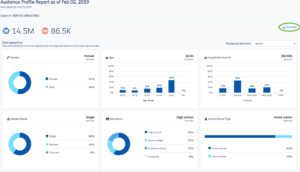Salesforce Marketing Cloud
The Marketing Cloud and CRM are both integrated into Salesforce, and they provide marketers with tools for analyzing, segmenting and personalizing email content. Salesforce Marketing Cloud includes four base versions, as well as a data management platform and studio components that help marketers manage and engage with different communication channels, data, and customer journeys. The studio components help marketers design and manage customer journeys and engage with social media. The “Builder” components make it possible to track results and make adjustments in real time.
Pardot is a marketing automation platform that allows marketers to segment leads based on their value, automating the tedious nurturing process. On the other hand, salesforce marketing cloud training integrates solutions from several different platforms, including analytics, event-driven triggers and other applications. For many businesses, both tools provide the same features and are highly beneficial. But which one is better for your business? Read on to find out.

Salesforce Marketing Cloud was initially developed as a B2C platform, but its use in B2B has grown considerably, as B2B decision makers expect the same experience for their customers as they do for B2C customers. Salesforce Marketing Cloud is not the cheapest product in its category, but its extensible nature allows it to grow as your business does. And it won’t be a tool your organization will outgrow.
Is Salesforce the Same As Salesforce Marketing Cloud?
The Marketing Cloud source is a unique data source that allows marketers to build complete customer journeys. They can create email campaigns, track their success, and even manage digital media campaigns. Another new feature that enables marketers to send data to Salesforce Marketing Cloud is Segment. It connects to a data warehouse and saves them time and money by allowing them to send data without relying on costly custom solutions.
Einstein is a new AI-enabled feature that powers the Marketing Cloud. Einstein is integrated with other marketing cloud features, including Send Time Optimization, Engagement Scoring, and Customer Journey Analysis. Einstein also extends support for Salesforce Einstein AI, a leap forward in artificial intelligence. With Salesforce Einstein AI, marketers can get even more personalized experiences for their customers. And Einstein’s AI capabilities are only the beginning.
As the name suggests, Salesforce Marketing Cloud is a suite of advanced tools that enable businesses to understand and target their customers. Its capabilities allow users to create personalized content that is personalized to each customer. This allows marketers to develop a one-to-one relationship with their customers. In other words, the marketing cloud is designed to give businesses a 360-degree view of their customers. You can’t go wrong with this combination.
When it comes to the tools, Pardot and salesforce marketing cloud tutorial both integrate marketing automation and social media. Pardot, on the other hand, is a marketing automation tool for B2B companies. Both systems combine email marketing and social media marketing tools, and Pardot is more focused on B2B clients. Its primary purpose is to build email campaigns, nurture leads, and keep your company fresh in the collective minds of businesses.